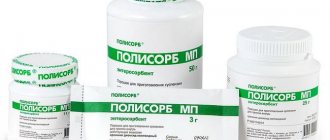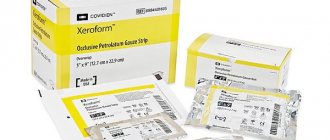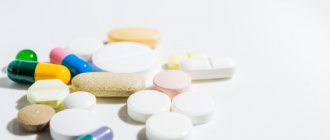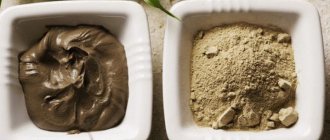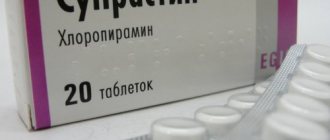Indications and contraindications
With all its positive properties, Polysorb is still a full-fledged medicinal product, and this information cannot be ignored.
Indications:
- alcohol poisoning;
- allergies;
- viruses;
- hazardous working conditions associated with the chemical industry;
- hepatitis (the level of bilirubin in the body increases, which is neutralized by Polysorb);
- purulent diseases;
- dermatitis;
- diarrhea;
- dysbacteriosis;
- long course of antibiotic treatment;
- infections;
- disturbances in the gastrointestinal tract;
- weakened immune system;
- drug overdose;
- liver failure;
- food intoxication;
- hangover;
- renal failure (causes the accumulation of urea in the body, which this drug copes well with);
- living in environmentally unfavorable areas;
- psoriasis;
- toxicosis;
- eczema.
Contraindications:
- individual intolerance;
- intestinal obstruction;
- bleeding in the gastrointestinal tract;
- violation of the evacuation function of the intestines, which is manifested by constipation, bloating, flatulence, pain in the abdomen;
- exacerbation of ulcers;
- oncology;
- severe vomiting.
If you have a history of diseases from the list of indications, cleansing the body with Polysorb will also become a course of treatment. Especially often, grateful users note its high effectiveness against allergies. By eliminating allergens, it relieves rashes, tearing and other symptoms of this disease, that is, it has an antihistamine effect.
Pregnant women, with the permission of their doctor, can take the powder in order to get rid of toxicosis and at the same time cleanse the intestines and amniotic fluid of organic debris.
It is equally important to observe contraindications. If you do not take them into account, instead of cleansing, you can get an exacerbation of existing diseases, deterioration of well-being, and even side effects.
If you are not sure about the need to cleanse the body, it is better to seek advice from an endocrinologist, gastroenterologist, or simply a therapist. Despite the fact that the drug is sold without a prescription, it is classified as a medicinal drug. This means that a doctor should recommend it.
Side effects
No one is safe from them. Yes, in most cases, their manifestation is facilitated by factors such as overdose, ignoring contraindications, non-compliance with instructions, and lack of medical supervision. But it also happens that the body reacts inadequately to the drug, and it ends with such troubles. Among the most common complications:
- allergic reactions;
- anemia;
- headache;
- dyspepsia: frequent belching, abdominal distension, unpleasant taste in the mouth;
- intestinal atony;
- impaired absorption of calcium and vitamins;
- metabolic disorder
- dehydration;
- general weakness;
- weakened immunity;
- swelling;
- digestive disorders;
- suppression of brain activity;
- persistent constipation;
- dry mucous membranes.
You shouldn’t be afraid of this list, because most of them can be prevented:
- to avoid allergies, you need to start taking Polysorb with minimal doses and carefully monitor the body’s reaction, as well as take antihistamines in parallel;
- to prevent the development of anemia, include as much iron in your diet as possible;
- to prevent vitamin deficiencies, eat a lot of fresh fruits and vegetables, and you can also take a course of multivitamins;
- dehydration was discussed above: normalize your drinking regime, and it will not threaten you, it will also save you from dry mucous membranes;
- Immunity will not weaken if you lead a healthy lifestyle, dress for the weather, play sports and eat right.
It is much more difficult to cope with intestinal disorders. Here you will either have to consult a gastroenterologist or abandon this method of cleansing. As for constipation, they most often occur after you have completed the entire course. To alleviate your condition, do not be afraid to drink something gentle laxative: these can be either medications or herbs.
Rules for preparing a medicinal solution
In what water should Polysorb be diluted? Polysorb is produced in a powder substance. The medicine must be diluted with water before use. Before preparing the solution, pour 1/4 - 1/3 cup of water. The water should be at room temperature or lukewarm. The medicine should not be diluted in hot water. The drug will be useless.
After preparing the water, a single dosage of medication is poured into it. For an adult patient, the dosage per day is 6-12 g. It should be divided into 3-4 doses. In children, depending on the age group, dosages vary (from 1/2 teaspoon to 2 tablespoons). Only a doctor should calculate the dose for children. The doctor must explain how to properly dilute Polysorb for a child.
How to dissolve Polysorb? During the preparation of the medicinal solution, the powder mass is poured into water, constantly stirring the liquid . It is necessary to stir so that the solution is uniform and without lumps. The medicine is taken 3-4 times a day. Course therapy can last from 3 to 15 days. The duration of therapy is determined by the doctor. It depends on the severity and type of disease. Severe poisoning may require taking Polysorb for up to 2-3 weeks.
The suspension solution cannot be diluted immediately for a full day. A single portion should be taken before use. The solution in dissolved form deteriorates very quickly, its effect becomes insufficient.
Polysorb should not be diluted in juice, tea, mixtures or other drinks . The effectiveness of treatment in this case will be significantly lower. The medicine should be diluted only in water.
The medicine should be taken orally 60 minutes before meals. Polysorb cannot be taken at the same time with other drugs. The interval between medications should be 1-2 hours.
For children, the powder mass should be diluted in 1/4 cup of water. If a child under one year old cannot drink the suspension from a glass, it can be poured into a bottle. It is allowed to drink the drug from a spoon. The child must drink the medicine completely.
Advantages and disadvantages
Advantages:
- acts instantly (literally in 3-4 minutes);
- as an adsorbent it is many times better than similar preparations - lactrofiltrum, activated carbon, enterosgel, smecta;
- not absorbed into the blood;
- does not remove useful substances from the body;
- has no age restrictions;
- is not deposited in the body;
- does not contain harmful chemical elements;
- very effective (sorption area is more than 300 m2);
- has a positive effect on intestinal microflora;
- Allowed for pregnant and lactating women.
Flaws:
- addictive;
- overdose is fraught with side effects;
- insufficiently studied and tested.
But here you can clearly see how good cleansing the body with Polysorb is: with many advantages, there are only 3 negative points. This is impressive and makes us pay closer attention to this product.
Information about the drug
Polysorb is a new generation universal enterosorbent. Sorption capacity is 300 mg/g, which is several times higher than that of other similar drugs. The main active ingredient is colloidal silicon dioxide. It is produced without additional ingredients, so there are no “chemicals” in its composition.
It is a white, slightly grayish or bluish-tinged odorless powder.
Designed for detoxification in cases of poisoning of various etiologies. But its ability to remove up to 95% of harmful substances is often used to cleanse the body and lose weight.
Available in 3 g sachets costing approximately $0.6 per piece. (10 sachets per package), as well as plastic jars:
- 12 g (ideal for a child) - $2.1;
- 25 g (can be purchased for a home first aid kit in case of poisoning) - $3.6;
- 35 g (recommended for the treatment of diseases) - $4.4;
- 50 g (can be used for complete cleansing of the body and weight loss) - $6.2.
Sold in pharmacies without a prescription.
General properties of the medicine
Polysorb contains silicon dioxide. The powder mass is packaged in jars. The medicine captures toxin molecules and waste products of bacterial and viral agents well. The drug can bind molecules of alcohol, metals, radionuclides, and radicals. All harmful substances move through the intestines without being absorbed into the bloodstream. The medicine is not absorbed through the walls of the intestinal tube. It comes out with stool in the same form.
The drug is approved for infants weighing less than 10 kg. The product can be used in children of preschool and school age. Pregnant patients should take the sorbent only as prescribed by a doctor.
Indications for use of Polysorb:
- intoxication syndrome;
- intestinal infectious diseases;
- purulent diseases in surgical practice (if there is a spread of pathogens);
- drug overdose, poisoning with poisons, alcohol-containing drinks, metals and their salts;
- allergies to foods and medications;
- increased blood bilirubin, icteric syndrome due to hepatitis;
- elevated levels of nitrogen in the blood due to kidney dysfunction.
Polysorb is not used for ulcerative damage to the intestinal tube, bleeding from the walls of the stomach and duodenum. You cannot use Polysorb if there is no tone of the intestinal walls. The medicine should not be prescribed if you are intolerant to its components.
When using Polysorb, undesirable effects may occur. The medicine can cause constipation, allergies, stool disorders, vomiting, and nausea. The drug can capture calcium and vitamin molecules. Long-term use of the drug leads to calcium deficiency, osteoporosis (with regular use), and hypovitaminosis. Analogues of Polysorb are Activated carbon, White carbon, Smecta, Enterosgel.
Instructions for use "Polysorb"
Using the medicine is quite simple. Instructions for use by children: take a teaspoon and dissolve in water (half or a quarter glass). Mix thoroughly and drink 60 minutes before taking a medicine (other) or food. Adults also prepare a solution, but when determining the amount, body weight must be taken into account: 0.1 or 0.2 kg for each kg of weight. For example, with a body weight of 70 kg, you need to take about 7-14 g of powder.
Depending on the condition and diagnosed disease, there are several features of taking Polysorb:
- If a food allergy is detected, the solution is taken before meals or directly during meals. Treatment is carried out 3 times a day.
- If acute food poisoning is observed, the dosage is the same, and the course lasts up to 14 days. Then a break is taken for 2-3 weeks, after which therapy can be continued on the recommendation of a doctor.
- If there are symptoms of acute poisoning or infection, it is necessary to prepare a Polysorb solution with a concentration of 0.5-1% and rinse the stomach. It is better to start treatment as early as possible.
- If an acute intestinal infection is diagnosed, the medicine is taken 5 times with an interval of 1 hour. In this case, the dosage should be maximum – 0.2 g per 1 kg of the patient’s body weight. The next day, repeat the cycle, but take the solution 4 times. Treatment in the same regimen is continued for the next 3, 4 or 5 days. Then take a break and, if necessary, resume therapy.
- "Polysorb" is also used for the treatment of viral hepatitis (as an additional remedy). Moreover, it is used within the first 10 days after the appearance of signs of the disease, after consulting with a doctor.
- If acute renal failure is diagnosed, treatment is continued for 25 to 30 days. The dose is taken at a maximum dosage of 0.2 g per 1 kg. The total duration is from 2 to 3 weeks.
- For the treatment of dermatosis, "Polysorb" is used for 10-15 days, for eczema and psoriasis - 15-20 days.
- The drug can be used as an additional drug for the treatment of bronchial asthma, acute urticaria, Quinge's edema. In these cases, the dosage and duration are determined by the doctor.
- To treat acne (pimples), Polysorb is used externally. It is diluted to obtain a creamy consistency and applied to the affected areas for 15 minutes. In this case, the areas around the mouth and eyes are left free. Then rinse with warm water and wipe dry, then apply any moisturizer. If the skin is dry, the procedure can be repeated no more than once every 10 days. In other cases, the course lasts a week, after which a break is taken for the same time.
Recommendations
In addition to dosages and course duration, proper use of Polysorb requires compliance with certain rules. They relate to the peculiarities of preparation and storage of the drug. With their help, you can enhance the cleansing properties and avoid unpleasant consequences.
What should be done:
- Get examined to make sure there are no contraindications.
- Get your doctor's permission.
- Carefully read the instructions for use, do not exceed the indicated dosages and follow all recommendations.
- Keep the jar tightly closed, out of reach of light. The optimal temperature is no higher than 25 °C.
- Shelf life: 5 years.
- If a package of powder has been opened, it must be used immediately; upon contact with oxygen, the adsorbing properties are reduced.
- Polysorb can be diluted not only in water, but also in any other liquid. For example, in juice, fruit drink or mineral water.
- To avoid mistakes with dosages, keep in mind that one heaped teaspoon is only 1 g of Polysorb, and one heaped tablespoon is about 3 g.
- To prepare the suspension, it is better to use warm rather than cold water.
- There is no need to pour the powder into water: it needs to be slowly poured into it.
- When swallowing the suspension, discomfort may occur. To minimize them, hold your breath while sipping.
- Polysorb weakens the effect of some medications, so you will either have to stop taking them during the cleaning or take them 2-3 hours after it.
- Drink as much water as possible to avoid dehydration.
- If constipation begins, this is not a reason to refuse cleansing. There are two ways to get rid of them: reduce the initial dosage and include as much fiber in your diet as possible.
- To avoid an addictive effect, the duration of use should not exceed 2 weeks.
- If you don’t like the results and you are sure that the cleaning needs to be repeated, do it no earlier than 2 weeks after that.
As you can see, using Polysorb correctly is not such a difficult task. All recommendations are feasible and do not involve additional costs or hassle. With repeated use of the drug, all these points will become a habit.
